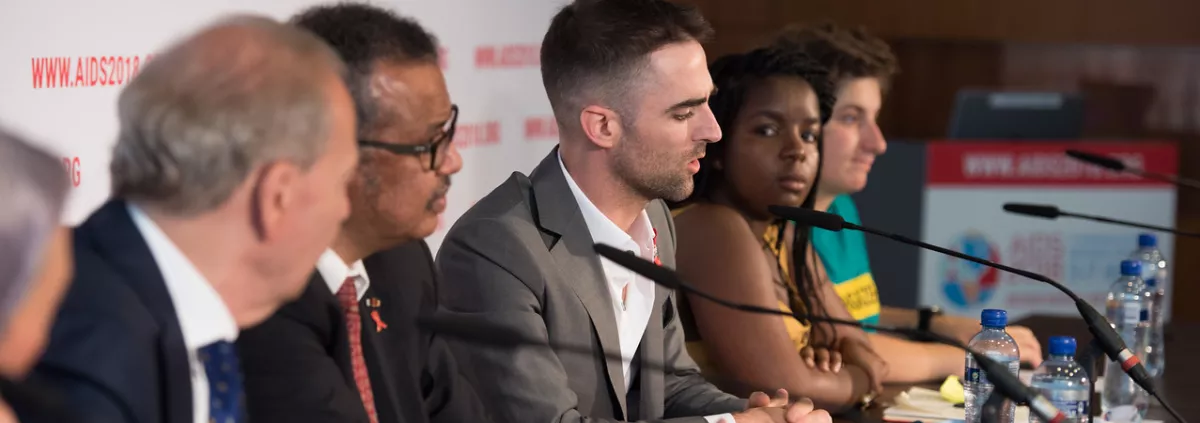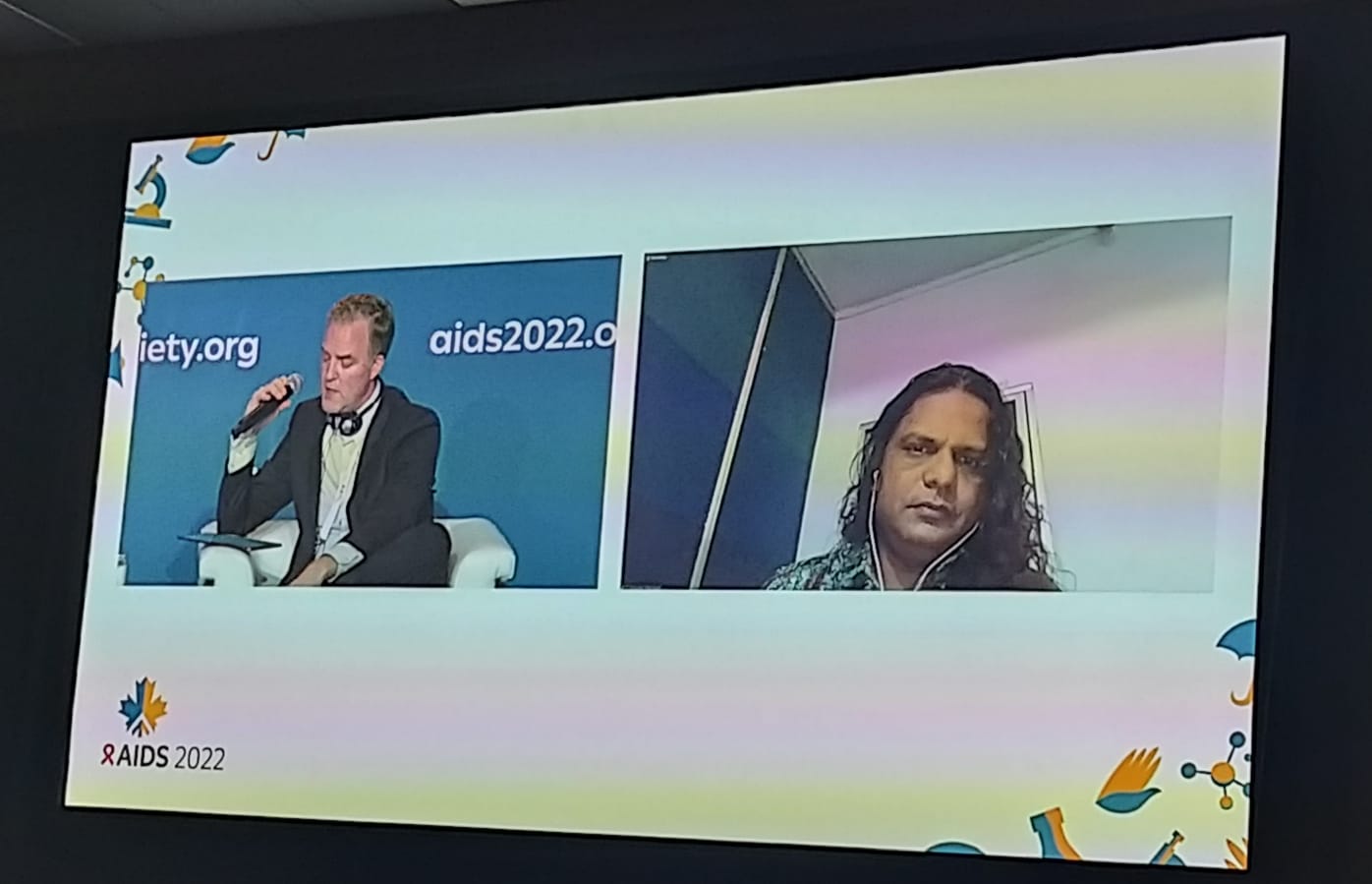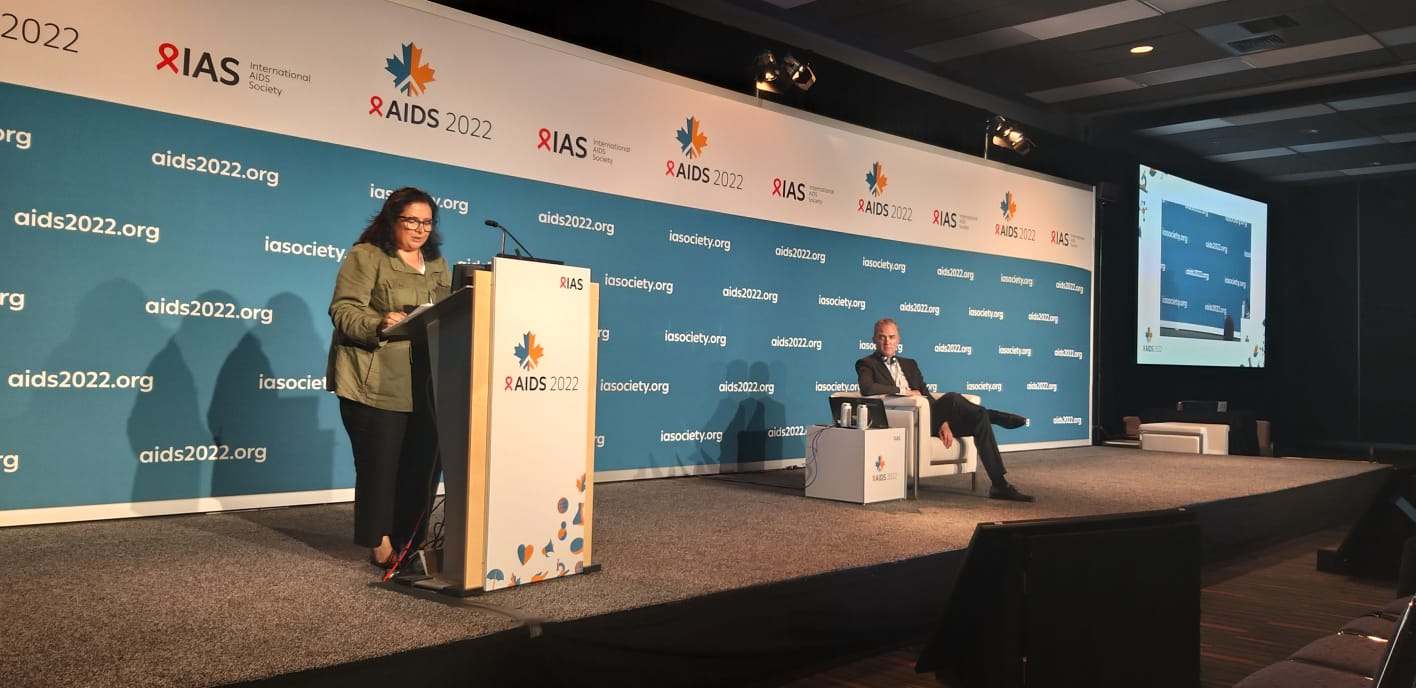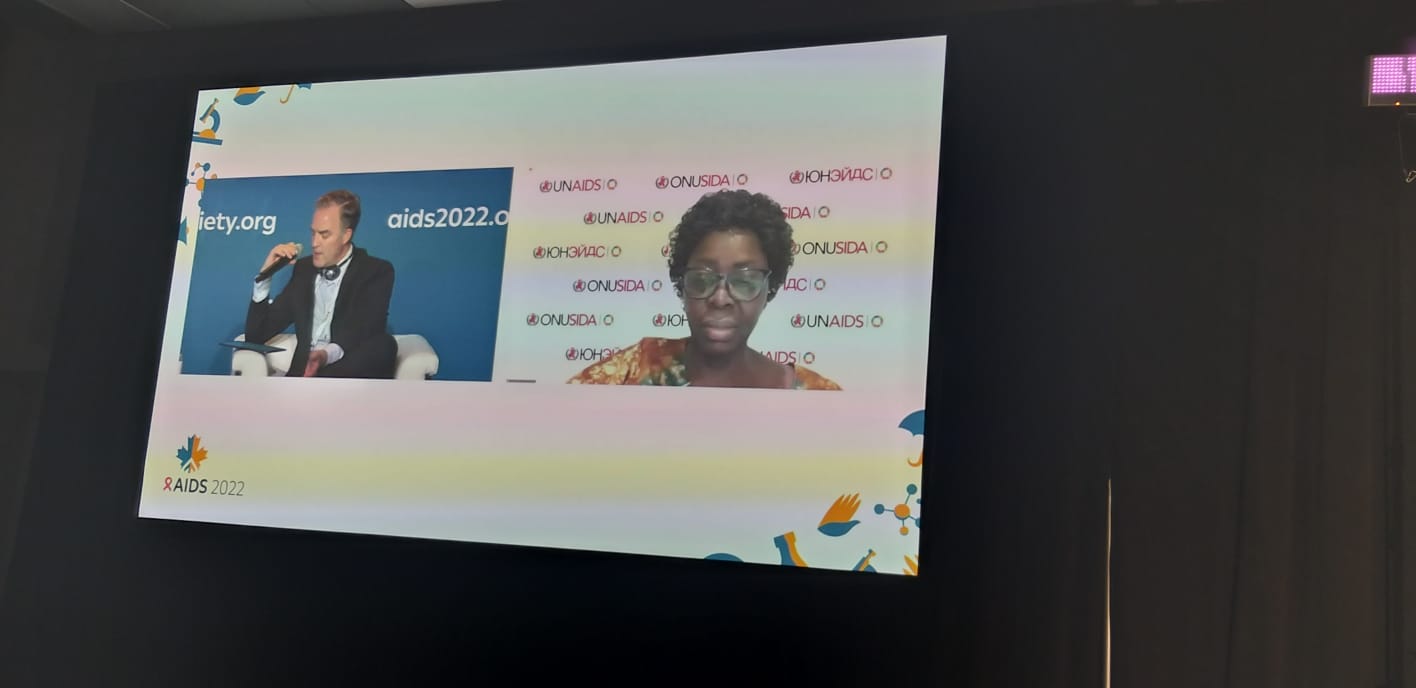Dear colleagues,
A small group of UNDP colleagues from the HIV, Health and Development team are participating in AIDS 2022 as delegates from 27 July - 2 August 2022.
During the conference week the team will cover a selection of activities related to key populations, human rights, digital health, stigma and discrimination, investments and efficiencies and gender. The team will post highlights, new research, evidence and key takeaways below. We hope these updates will help to inform your work.
We encourage you to share your views and comments.
The CoP on HIV and Health team
Read up on UNDP at AIDS 2022 here.

 We learned about the advocacy work of the Lakshya Trust from the state of Gujarat in India and the advocacy efforts and partnership with the government and support from UNDP to ensure access to COVID-19 testing and vaccination for trans people, as well as to expand the access of transgender people to other social services.
We learned about the advocacy work of the Lakshya Trust from the state of Gujarat in India and the advocacy efforts and partnership with the government and support from UNDP to ensure access to COVID-19 testing and vaccination for trans people, as well as to expand the access of transgender people to other social services. Civil society in Zambia, supported by UNAIDS, partnered with the government to carry out assessment on the impact of COVID-19 on people living with HIV and key populations and the opportunity to make the current social protection system more inclusive. The government is already following up with some of the recommendations of the community organizations.
Civil society in Zambia, supported by UNAIDS, partnered with the government to carry out assessment on the impact of COVID-19 on people living with HIV and key populations and the opportunity to make the current social protection system more inclusive. The government is already following up with some of the recommendations of the community organizations.
Jeff, this was a strong session - many congratulations to you and team! Impressive how, minutes after you started, the huge room we had started filling with young activists from African countries, but also many people for Southeast Asia, who came to listen and compare notes. Speakers were joking about overusing the term "intersectionality" but the session was about intersectionality - and connecting the dots between HIV and key populations, LGBT+ rights and inclusion and catalytical factors for a positive social change. The panelists were impressive. Engaging and empathic, with excellent chemistry between them - all of them strategic thinkers, who know their field very well. A pleasure to listen.